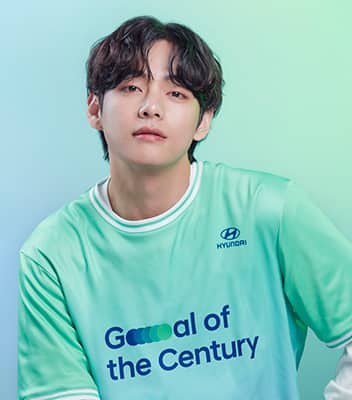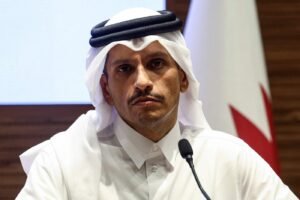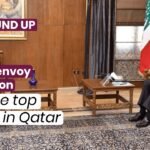
Sport sponsorship has become a sensitive matter in recent years, meaning it is no longer just a matter of business but increasingly a matter of politics too.
If you take a walk around your nearest shopping mall, you may already see drinks, brands and fast food outlets adorned with words, images and promotions which reveal them to be official sponsors or partners of the upcoming FIFA men’s World Cup in Qatar.
Such businesses will have signed multi-million dollar deals with FIFA for the legal right to be associated with global football’s biggest tournament. Hence, the likes of Coca Cola and McDonalds will be working hard to ensure that they achieve a return on the investments they have made.
There may be some people and businesses, both inside and outside Qatar, that present themselves as somehow being associated with the World Cup.
Indeed, some fans and consumers could unwittingly believe they are buying products from a tournament sponsor, when actually they are not. This is called ambush marketing whereby a brand tries to make itself look like a sponsorship when in fact it has nothing to do with the event.
Sponsorship is typically seen as being a commercial activity through which brands and businesses can raise awareness of and enhance recall about who they are and what they do.
Sponsorship also helps to boost image: in being associated with the most popular and prestigious football event in the world may help brands to be seen by consumers in the same way.
In this context, it is important to view sponsorships as consisting of two parts. The first is the fee that a sponsor pays to the likes of FIFA. This is akin to buying a car, though cars need fuel to make them work properly; thus the second part of a sponsorship – known as activation, which powers sponsorships and explains why many of you are now seeing the words, images and promotions mentioned earlier.
A sponsor spends once on acquiring the right to be associated with an event such as the World Cup and then spends some more on making sure that the sponsorship is as effective and successful as possible.
Where does politics come into the equation?
In recent years, sport sponsorship has become something of a sensitive matter, meaning it is no longer just a matter of business but increasingly a matter of politics too.
For instance, during the years of Qatar’s recent blockade, some sponsors were questioning how best to activate their World Cup sponsorship deals.
The specific concern was that Qatar’s hosting of the World Cup presented an opportunity, even though Saudi Arabia is the bigger market – begging questions on how to reconcile the two.
There have also been some issues with sponsorship amid concerns about Qatar’s treatment of migrant workers; with sponsors of teams rather than the event itself, such as France’s Carrefour and ING of the Netherlands, thought to have had concerns about activating their deals with the national teams they partner with.
A reason for this is that they fear a consumer backlash in European markets should they be perceived as being complicit in any mistreatment of migrant workers.
So, what’s in it for K-pop’s BTS?
The politics of sponsorship are not just wrapped-up in concerns or criticisms.
Instead of seeing controversy, some of football’s most prominent sponsors see an opportunity to raise their presence and profile across a diverse range of territories, globally.
As such, sponsorships are becoming part of the pursuit by nations to promote their brands and project soft power around the world.
In one case, FIFA partner Hyundai/Kia – a South Korean car manufacturer – started activating their association with the World Cup, something they have been doing in conjunction with K-Pop band BTS.
K-Pop is a contemporary music phenomenon and BTS is one of its biggest selling groups both of which, like Hyundai/Kia, are South Korean.
This tie-up is not accidental, it is part of a South Korean government plan to promote the country and spread its influence around the world.
Branding involves a nation creating a clear identity and embracing a set of values which may be attractive to people in other countries. This process of attraction is referred to by some as ‘soft power projection’ which, despite its name, is intended to help nations get what they want.
The tie-up between Hyundai/Kia and BTS is therefore not only beneficial to them but also to South Korea itself.
The government in Seoul wants to position the country as being modern and vibrant, fashionable and trustworthy, which has a bottom-line, not only politically and culturally but also economically. After all, if people find a country, its businesses and cultural icons attractive, they are more likely to buy from them.
Qatar’s own branding
South Korea is not alone in using sponsorships in this way, Qatar blazes a trail as well.
The country’s national airline is also a FIFA global partner, its name already being seen around the world on everything from the football governing body’s website to the fuselages of Qatar Airways jets flying around the world.
The airline will have paid hundreds of millions of dollars for its association with FIFA, though there is a financial bottom line to the deal. Qatar Airways is in the business of selling seats on planes, be it to those who attend the World Cup or otherwise. It also contributes to helping establish Hamad International Airport as a global transit hub.
There is a clear soft power dimension to what Qatar Airways does, which is underpinned by the notion that ‘Qatar deserves the best’ and is validated by the corporation in consistently winning awards for being the world’s best airline.
An ambition to always provide high standards of service is just one of the messages that the government in Doha is seeking to project through Qatar Airways and its World Cup sponsorship.
As the World Cup approaches, we will be seeing many more related promotions appearing on our mobile devices and inside shopping malls.
Companies and brands will be enticing us to spend our money and trying to shape our perceptions of the countries from which they originate.
But it is not just soft drinks, cars and airline tickets that are being marketed to us, but also sets of values, an identity, a culture and a way of life.
Simon Chadwick is Director of Centre for the Eurasian Sport Industry and is a professor at the Emlyon Business School.
The views and opinions expressed in this article are those of the authors and do not necessarily reflect the official policy or position of Doha News, its editorial board or staff.







